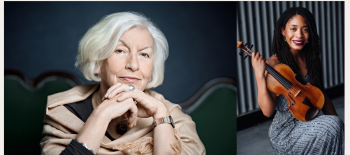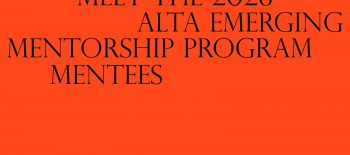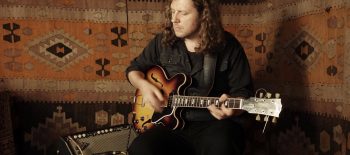Polish Poetry Unites is a video series complementing our Encounters with Polish Literature series for anyone interested in literature, poetry in particular, history, and reading. In each episode, Edward Hirsch, a distinguished American poet, and the president of the Guggenheim Memorial Foundation, will introduce a celebrated Polish poet to American audiences.
The seventh episode is devoted to Wisława Szymborska (1923-2011) who was first Polish woman and the ninth woman in the world to win the Nobel Prize in Literature. We celebrate her centennial this year. The celebrations are coordinated worldwide by The Wisława Szymborska Foundation in Kraków.
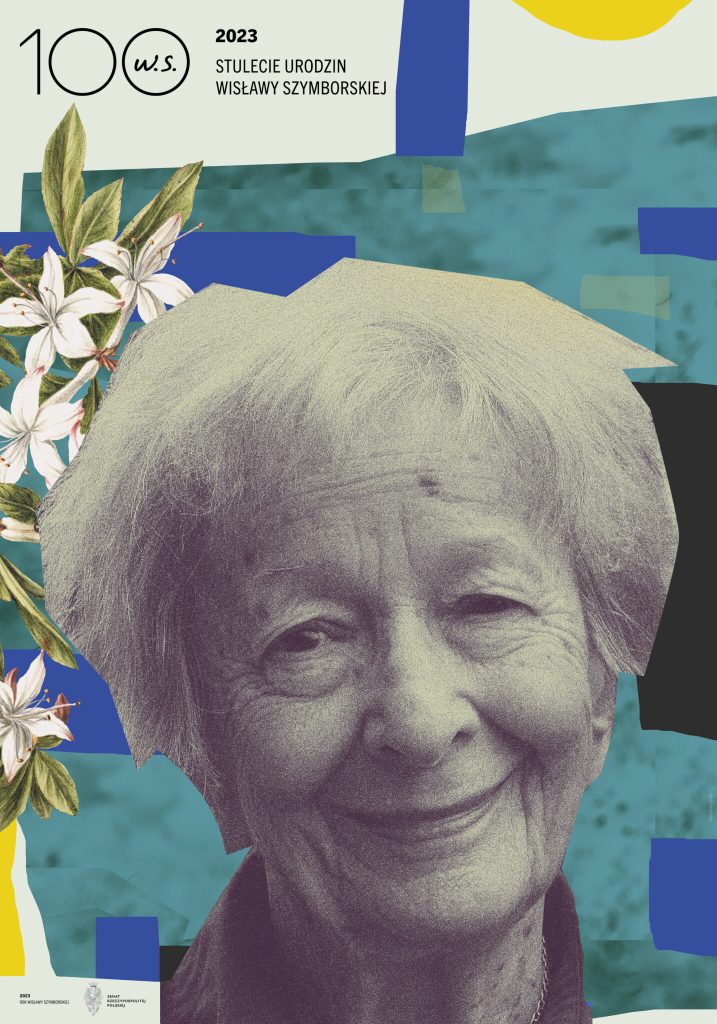
“Wisława Szymborska is a marvelous Polish poet, a major 20th century Polish poet.” – starts his introduction Edward Hirsch. “She belongs to the half generation after Miłosz, the generation of Herbert and Różewicz, which means that she lived through two totalitarianisms: the German occupation first, the Soviet occupation second and I think that this gave her a kind of allergy to collectivist thinking.“
She refuses all collectivist ideas. She speaks only of the individual, the “I.” She doesn’t speak for the “we.” And she is also very aware of the limitations of the sensibility of the individual… Throughout her work, which is extremely witty, there is a great awareness of cruelty and evil… There was a sense that the world was coming to an end, and yet the world did not come to an end, somehow after every catastrophe, the world still manages to survive.
Against this sense of radical contingency of destruction that can come at any time, at any moment, Hirsch highly recommend her poem “Could have.” It could have happened, it might have happened, it had to happen. She’s really writing a poetry of the close shave.
Against this idea of our radical mortality there is also a sense of the staying power of art. The art of writing, the art of painting, the art of music as tremendous miracles of human creation. She has a sense also of what she calls “the miracle fare of life” which is daily life and how daily life somehow continues to reimagine itself.
Hirsch likes to mention than not many people know that Szymborska also made wonderful collages which she sent to friends. The postcards in communist Poland were so bland that she refused to use them. Instead she used the ones she made herself which were very witty and funny. Her collages are very witty and insightful. Especially the one she sent to Umberto Eco, with a woman from the 19th century looking at this wonderful orange sun set. It is very evocative.
Hirsch says “I knew her a little. I interviewed her after she won the Nobel Prize, for the New York Times Magazine. But I knew her well enough to say that she would love this high school girl in the film about Vermeer, who is going blind and loves Szymborska’s poem “Vermeer” and Vermeer himself.“
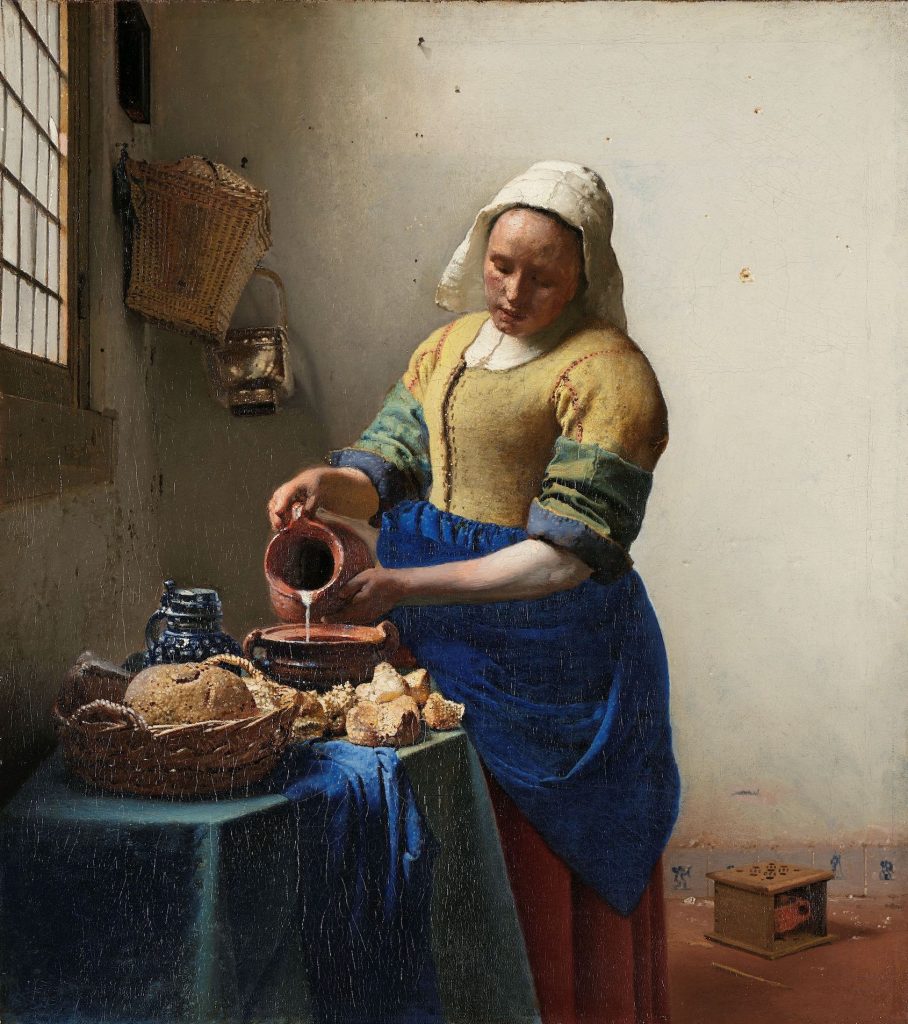
This poem, “Vermeer,” gives you a sense in just one moment of what is so marvelous about human experience, as it gets transformed into art. Because somehow through the miraculous transformation of art Vermeer captures a moment of a milk maid pouring milk out of a jug that will last forever. This moment of the everyday has a kind of radiance. It is captured first by Vermeer, then it is transformed into Szymborska’s marvelous little poem. And then this wonderful blind high school girl finds this poem, recites it aloud and three imaginations come together: Vermeer’s, Szymborska’s, and hers.
Vermeer
by Wisława Szymborska
Dopóki ta kobieta z Rijksmuseum
w namalowanej ciszy i skupieniu
mleko z dzbanka do miski
dzień po dniu przelewa,
nie zasługuje Świat
na koniec świata.
Vermeer
by Wisława Szymborska
translated from Polish by Clare Cavanagh and Stanislaw Baranczak
So long as that woman from the Rijksmuseum
in painted quiet and concentration
keeps pouring milk day after day
from the pitcher to the bowl
the World hasn’t earned
the world’s end.
Source: The New York Review of Books
If you are interested more in Wisława Szymborska and her oeuvre please listen to this previous episode of our monthly series “Encounters with Polish Literature” on Wisława Szymborska.
In this episode David A. Goldfarb speak with Szymborska’s current main English-language translator, Clare Cavanagh, about what it was like to work with Szymborska, and they look at several of her poems from her earliest work in the late 1940s and early ‘50s, to her political shift marked by the collection, Calling Out to Yeti, to later works including a personal perspective on her very popular “Cat in an Empty Apartment.” They also touch upon her love of kitsch, her fascination with boxing, and look at a few of her collages. Toward the end of the discussion they offer a tribute to the editor, Drenka Willen, who championed literature in translation during her long career at Harcourt, and helped many great international writers, including Wisława Szymborska, reach wide audiences in English and go on to win the Nobel Prize for Literature.
Wisława Szymborska, (born July 2, 1923, Bnin [now part of Kórnik], Poland—died February 1, 2012, Kraków), Polish poet whose intelligent and empathic explorations of philosophical, moral, and ethical issues won her the Nobel Prize for Literature in 1996.
Szymborska’s father was the steward on a count’s family estate. When she was eight, the family moved to Kraków, and she attended high school there. Between 1945 and 1948 she studied literature and sociology at Kraków’s Jagiellonian University. Her first published poem, “Szukam słowa” (“I Seek the Word”), appeared in a Kraków newspaper in March 1945. Dlatego żyjemy (1952; “That’s Why We Are Alive”), her first volume of poetry, was an attempt to conform to Socialist Realism, the officially approved literary style of Poland’s communist regime. In 1953 she joined the editorial staff of Życie Literackie (“Literary Life”), a weekly magazine of intellectual interests, and remained there until 1981. During this period she gained a reputation not only as a poet but also as a book reviewer and translator of French poetry. In the 1980s she wrote for the underground press under the pseudonym Stanczykówna and also wrote for a magazine in Paris.
Between 1952 and 1993 Szymborska published more than a dozen volumes of poetry. She later disowned the first two volumes, which contain poems in the style of Socialist Realism, as not indicative of her true poetic intentions. Her third volume, Wołanie do Yeti (1957; “Calling Out to Yeti”), marked a clear shift to a more personal style of poetry and expressed her dissatisfaction with communism (Stalinism in particular). Subsequent volumes, such as Sól (1962; “Salt”), Sto pociech (1967; “No End of Fun”), and Wszelki wypadek (1972; “Could Have”), contain poems noteworthy for their precise, concrete language and ironic detachment. Selections of her poems were translated into English and published in such collections as Sounds, Feelings, Thoughts: Seventy Poems (1981), People on a Bridge: Poems (1990), View with a Grain of Sand (1995), Monologue of a Dog (2005), and Here (2010).
Biography source: Britannica.
Selected works by Wisława Szymborska
Map: Collected and Last Poems. Tr. Stanisław Barańczak and Clare Cavanagh. New York: Houghton, Mifflin, Harcourt, 2015.
Miracle Fair: Selected Poems of Wislawa Szymborska. Tr. Joanna Trzeciak. New York: W.W. Norton, 2002.
Monologue of a Dog. Tr. Stanisław Barańczak and Clare Cavanagh. Foreword by Billy Collins New York: Houghton, Mifflin, Harcourt, 2015.
Nonrequired Reading: Prose Pieces. Tr. Clare Cavanagh. New York: Houghton, Mifflin, Harcourt, 2015.
How to Start Writing (And When to Stop). Tr. Clare Cavanagh. New York: New Directions, 2021.
Additional Resources:
The Wisława Szymborska Foundation
Wisława Szymborska Nobel Prize page
Wisława Szymborska page at the Academy of American Poets site
Wisława Szymborska page at the Poetry Foundation
Wisława Szymborska & the Poetry of Existence
Moderator: Edward Hirsch
Writer and Director: Ewa Zadrzyńska
Cinematography: Jacek Mierosławski
Editor: Anna Jędrzejewska
Curator and Executive Producer: Bartek Remisko
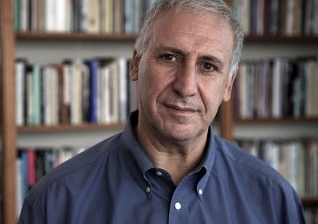
Edward Hirsch is an American poet and critic who wrote a national bestseller about reading poetry entitled How to Read A Poem And Fall In Love With Poetry published in 2014. He has published nine books of poems, including The Living Fire: New and Selected Poems (2010) and Gabriel: A Poem (2014), a book-length elegy for his son that The New Yorker called “a masterpiece of sorrow.” He has also published five prose books about poetry. His latest book of essays, 100 Poems to Break your Heart was published in 2021. He is president of the Guggenheim Memorial Foundation in New York City. Currently he is finishing a book of essays called The Heart of American Poetry. It will be published in April to mark the fortieth anniversary of the Library of America. The book consists of deeply personal readings of forty essential American poems. It rethinks the American tradition in poetry. Ed Hirsch lives in New York City.
Lead image: Polish poet Wisława Szymborska, taken Monday, September 30, 1996. Szymborska was named winner of this year’s Nobel Prize for Literature on Thursday, October 3, 1996. AP Photo/Filip Miller.

